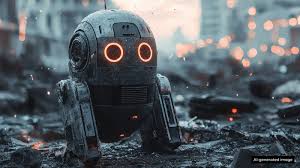
Breaking News
 How Palantir Is Watching You Right Now
How Palantir Is Watching You Right Now
 Cavorite X7 makes history with first fan-in-wing transition flight
Cavorite X7 makes history with first fan-in-wing transition flight
 Vince Foster, James McDougal, Seth Rich: Trump Posts Wild 'Clinton Body Count' Clip
Vince Foster, James McDougal, Seth Rich: Trump Posts Wild 'Clinton Body Count' Clip
 A Full Update on Trump's Tariff Strategy in 12 Minutes, Highlights
A Full Update on Trump's Tariff Strategy in 12 Minutes, Highlights
Top Tech News
 Watch: Jetson's One Aircraft Just Competed in the First eVTOL Race
Watch: Jetson's One Aircraft Just Competed in the First eVTOL Race
 Cab-less truck glider leaps autonomously between road and rail
Cab-less truck glider leaps autonomously between road and rail
 Can Tesla DOJO Chips Pass Nvidia GPUs?
Can Tesla DOJO Chips Pass Nvidia GPUs?
 Iron-fortified lumber could be a greener alternative to steel beams
Iron-fortified lumber could be a greener alternative to steel beams
 One man, 856 venom hits, and the path to a universal snakebite cure
One man, 856 venom hits, and the path to a universal snakebite cure
 Dr. McCullough reveals cancer-fighting drug Big Pharma hopes you never hear about…
Dr. McCullough reveals cancer-fighting drug Big Pharma hopes you never hear about…
 EXCLUSIVE: Raytheon Whistleblower Who Exposed The Neutrino Earthquake Weapon In Antarctica...
EXCLUSIVE: Raytheon Whistleblower Who Exposed The Neutrino Earthquake Weapon In Antarctica...
 Doctors Say Injecting Gold Into Eyeballs Could Restore Lost Vision
Doctors Say Injecting Gold Into Eyeballs Could Restore Lost Vision
AI is the future of war

In the 1983 film War Games, a supercomputer known as WOPR (for War Operation Plan Response) is about to provoke a nuclear war between the United States and the Soviet Union, but because of the ingenuity of a teenager (played by Matthew Broderick), catastrophe is averted.
In the first Terminator film, which was released a year later, a supercomputer called "Skynet" decides to exterminate humanity because it's perceived as a threat to its existence rather than to protect American nuclear weapons.
Although these films offered audiences grim scenarios of intelligent machines running amok, they were also prophetic. Artificial intelligence (AI) is so commonplace that it's routinely applied during a simple Google search. That it is also being integrated into military strategies is hardly any surprise.
It's just that we have little understanding of the capacity of these high-tech weapons (those that are now ready for use and those in development). Nor are we prepared for systems that have the capacity to transform warfare forever.
Throughout history, it is human intelligence that uses the technology, not the technology itself, which has won or lost wars. That may change in the future when human intelligence is focused instead on creating systems that are more capable on the battlefield than those of the adversary.
"Exponential, insurmountable surprise"
Artificial intelligence isn't a technology that can be easily detected, monitored, or banned, as Amir Husain, the founder and CEO of an AI company, SparkCognition, pointed out in an essay for Media News.
Integrating AI elements—visual recognition, language analysis, simulation-based prediction, and advanced forms of search—with existing technologies and platforms "can rapidly yield entirely new and unforeseen capabilities." The result "can create exponential, insurmountable surprise," Hussain writes.
Advanced technology in warfare is already widespread. The use of uncrewed aerial vehicles (UAVs)—commonly known as drones—in military settings has set off warnings about "killer robots."
What happens when drones are no longer controlled by humans and can execute military missions on their own? These drones aren't limited to the air; they can operate on the ground or underwater as well. The introduction of AI, effectively giving these weapons the capacity for autonomy, isn't far off.

 Node without Consent
Node without Consent Dark Matter: An 86-lb, 800-hp EV motor by Koenigsegg
Dark Matter: An 86-lb, 800-hp EV motor by Koenigsegg

